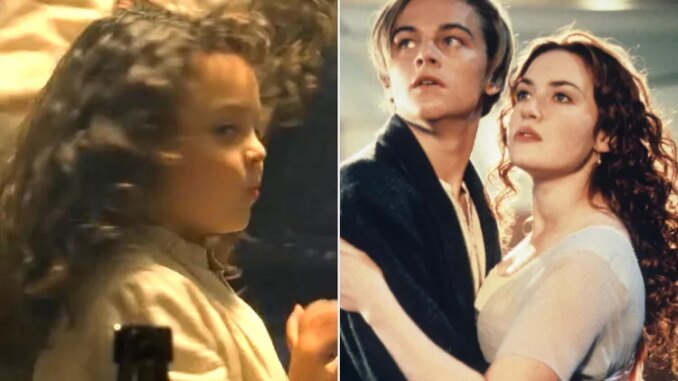
The Ghost of Cora: Why a Lost Scene Still Haunts Titanic's Legacy
The Titanic, a film epic that cemented itself in cinematic history, is a sprawling tapestry woven with historical accuracy and fictionalized narratives. At the heart of this tapestry lies the romance of Jack and Rose, a love story that tragically unfolded against the backdrop of impending doom. However, the film also features a constellation of supporting characters, their brief appearances etching themselves into our memories. Among them, the young Irish girl, Cora Cartmell, played with endearing innocence by Alexandra Owens-Sarno, stands out. And while Cora’s fleeting interactions with Jack, dancing and dreaming of faraway places, charmed audiences, a more poignant scene, ultimately deemed too heartbreaking, was cut from the final film. The actress's revelation of this deleted scene unveils not just a missing piece of the Titanic's narrative, but a deeper understanding of the film’s emotional core and the devastating impact of the tragedy on children.
The deleted scene, as described by Owens-Sarno, depicts Cora in the aftermath of the sinking. Amidst the floating wreckage and the mournful cries of survivors, she is searching for her father. The camera lingers on her small, tear-streaked face as she calls out his name, her voice lost in the cacophony of despair. In the end, she doesn’t find him. She is left alone, a child orphaned by the sea, a tangible representation of the countless families torn apart by the disaster. This scene, though brief, offered a raw and unfiltered glimpse into the individual tragedies that comprised the larger historical event. Its removal, while understandable from a pacing perspective, left a void, a missing piece of the mosaic of human suffering.
Why was this scene ultimately deemed too heartbreaking? The answer lies, perhaps, in the already overwhelming emotional weight of the film. The spectacle of the sinking, the desperation of the passengers, and the tragic love story of Jack and Rose already placed a heavy burden on the audience’s emotions. Adding Cora's scene, so stark and devoid of the hope that Jack and Rose offered, might have pushed viewers beyond their emotional threshold. Filmmaking, after all, is a delicate balancing act. Too much sorrow, too much despair, can become overwhelming and ultimately detract from the story's overall impact.
However, the absence of the Cora scene highlights a common, and arguably problematic, tendency in large-scale disaster narratives: the tendency to gloss over the specific experiences of children. While the film touches upon the class divisions that dictated who survived and who didn’t, the unique vulnerability of children is less explicitly explored. Cora's scene, with its vulnerability and raw depiction of a child's loss, would have served as a powerful reminder of the human cost of the tragedy, particularly its impact on the most innocent and defenseless.
Furthermore, the existence of this scene, even in its deleted form, acts as a potent symbol of the countless untold stories that lie beneath the surface of historical events. The Titanic, as a historical event, is often represented by grand narratives of heroism and technological hubris. But the individual experiences, the small, intimate tragedies like Cora’s, are often relegated to the footnotes of history. The deleted scene serves as a reminder that behind every statistic, every headline, there are individual lives, each with its own unique story of loss and survival.
In conclusion, the removal of the Cora scene from Titanic, while perhaps understandable from a narrative perspective, leaves a lingering question: what is the cost of sanitizing tragedy for the sake of entertainment? The scene, as revealed by the actress, offers a glimpse into the devastating impact of the disaster on children, a perspective often overlooked in grand historical narratives. Its absence underscores the importance of remembering the individual stories of loss and survival that lie beneath the surface of historical events. While the grand narrative of the Titanic continues to captivate audiences, the ghost of Cora, a young girl forever searching for her father amidst the wreckage, serves as a poignant reminder of the human cost of the tragedy, a cost that should never be forgotten. The deleted scene, in its absence, continues to haunt the film's legacy, a testament to the power of untold stories and the enduring importance of remembering the children lost to the sea.